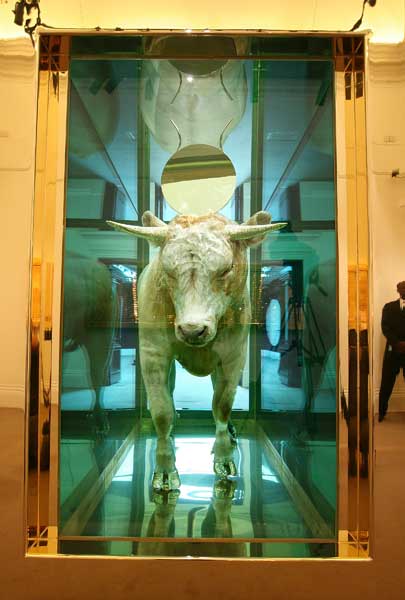Full Circle: How the Classical World Came Back to Us, By Ferdinand Mount

Your support helps us to tell the story
From reproductive rights to climate change to Big Tech, The Independent is on the ground when the story is developing. Whether it's investigating the financials of Elon Musk's pro-Trump PAC or producing our latest documentary, 'The A Word', which shines a light on the American women fighting for reproductive rights, we know how important it is to parse out the facts from the messaging.
At such a critical moment in US history, we need reporters on the ground. Your donation allows us to keep sending journalists to speak to both sides of the story.
The Independent is trusted by Americans across the entire political spectrum. And unlike many other quality news outlets, we choose not to lock Americans out of our reporting and analysis with paywalls. We believe quality journalism should be available to everyone, paid for by those who can afford it.
Your support makes all the difference.Ferdinand Mount advances a preposterous thesis, wearing the poker face a schoolboy hopes will convince his teacher of an implausible whopper. "So much about the society that is now emerging," he writes, "bears an astonishing resemblance to the most prominent features of what we call the classical world – its institutions, its priorities, its recreations, its physics, its sexual morality, its food, its politics, even its religion."
No, it doesn't. We may concede some approximate similarities, especially when remembering that the Greeks and Romans are our cultural ancestors. It is plausible, as Mount asserts in Full Circle, that the decline of Christianity in this country and perhaps across Europe, has allowed us to resume a guilt-free enjoyment of sex and other pleasures of the flesh. However, as if determined to undermine his basic proposition, he suggests in his opening chapter on bathing that the Turkish bath marks a return to Roman public baths. The trouble is that it was a 19th- and early-to-mid 20th-century phenomenon and today seems on the edge of extinction; at the last count only 16 Turkish baths are still in business in the United Kingdom.
Another chapter is illustrated with a photograph of Jeremy Paxman shown, oxymoronically, alongside an image of Socrates. It equates the terms "dialogue" (as in Plato's Symposium) and "interview" (as in Newsnight) in a vain attempt to show that today's journalistic nosiness matches the ancient Greeks' philosophical curiosity. Elsewhere, the cult of celebrity is presented as a parallel to the classical pursuit of glory. The late Jade Goody is prayed in aid. In fact, a noble Greek or Roman would simply not see the point of fame without achievement. Fiercely competitive, he wished to be known for his great deeds.
Mount must be poking his tongue into his cheek when he compares the ecstatic religions of the Roman empire with "our modern pop cults", noting that the Beatles, like the worshippers of Mithras, first celebrated rites in an underground cavern.
These limping comparisons set on one side, this is an eminently readable entertainment. Full Circle's over-arching theme is, in effect, a chest of drawers in which Mount happens to keep a full ensemble of intellectual garments, elegant, interesting and funny. The reader is strongly advised to ignore the container and concentrate on the products of a well-stocked mind stored inside.
For there are some real treats. First is a brilliantly argued critique of contemporary visual art, especially the conceptual kind. The author marvels at its popularity, for once a gallery-goer has cottoned on to the concept, there is nothing more to do but move quickly to the next exhibit. In his view, Damien Hirst exemplifies the artist as showman rather than as craftsman. "'The Golden Calf', like much of Hirst's work, really does give us a buzz. We have never seen anything like it. The trouble is that a buzz is all it gives us." At its best, much new art points us back to the world and our experience, not its creator's. By contrast, Rembrandt and Piero della Francesca draw the viewer ever deeper into their paintings and "feed the soul".
Mount is well-travelled and reports on visits to a number of places germane to his theme. His account of the Turkish baths in Harrogate and its denizens is a comic delight. "Under pointed arches picked out in orange, jade and magenta," he observes, "strut mighty Northern paunches with their hairy scrota swinging beneath as proud as sporrans." He evokes the sinister Nazi Thingplätze, concrete amphitheatres designed for propaganda displays, now rotting away in the depths of Germany's dank, dark, "sacred" forests. Seen through his eyes, the unearthed townscape of Ostia Antica has never seemed more lovely, with umbrella pines and cypresses standing among tawny ruins.
The author is like nobody so much as a salon hostess who can't stop introducing her guests to an interminable parade of "lions". Controversialists of the moment and ephemeral personalities crowd these pages and consequently this book, for all its charm, is likely to date quickly. So go out and buy it at once, while it is still fresh and beach-ready.
Anthony Everitt's life of Hadrian is published by Random House USA
Join our commenting forum
Join thought-provoking conversations, follow other Independent readers and see their replies
Comments